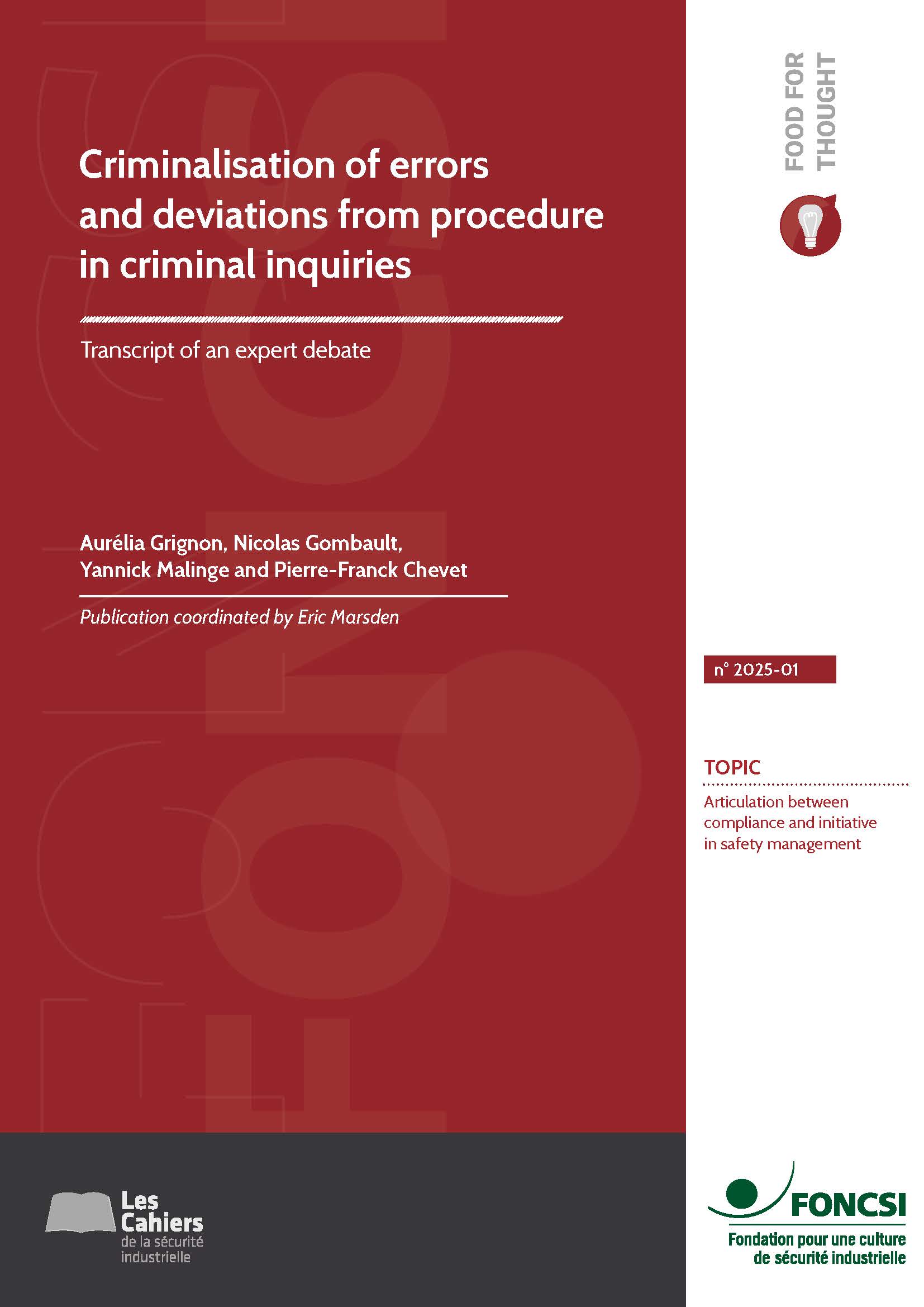Criminalisation of errors and deviations from procedure in criminal inquiries
Rule-based & managed safety
Industrial Safety "Cahiers"




Abstract
In post-accident investigations, the judicial authority must assess the degree of culpability (in criminal trials) or liability (in civil trials) associated with the actions or decisions of professionals that are causally linked to damages. These actions or decisions may pertain to different phases of the lifecycle of high-risk systems: their operation, maintenance, design, manufacturing, safety audits by accredited third parties, and inspections by a safety authority.
This analysis often relies on the opinions of court-appointed experts, who evaluate the level of compliance of actions or decisions with prescribed standards (laws and regulations, operating procedures, and professional best practices, which are more or less documented depending on the sector). Generally, the judiciary tends to view culpability as greater when the deviation from the prescribed standards is more significant, treating the standards as an algorithm to be followed strictly rather than as a source of guidance, which professionals may follow to a greater or lesser extent depending on local circumstances.
This document, a transcript of discussions from an online workshop organized (in French) by FonCSI in September 2024, examines the extent to which the judicial system can move away from the principle of “deviation → culpability”, a principle that is largely incompatible with the way in which professionals work in a number of industry sectors. It also explores the implications of the criminalization of deviations and errors for frontline workers (notably, the defensive reactions it provokes, such as defensive medical practices), as well as the consequences for businesses and authorities, including regulatory and procedural inflation.
This workshop-debate was organized as part of the strategic analysis of the link between Rule-based & managed safety.
This debate can be viewed on Foncsi's Youtube channel.
Available translations
Most publications are licensed under the Creative Commons BY, information available in the document. See the reproduction conditions.

